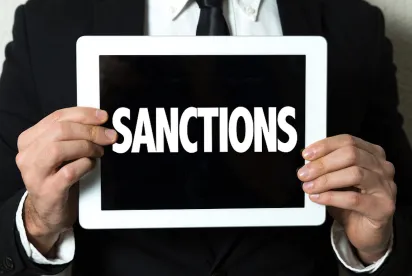On March 2, 2023, Deputy Attorney General Lisa Monaco delivered remarks to the ABA’s National Institute on White Collar Crime. Unsurprisingly, her remarks focused heavily on inspiring a culture of compliance – including highlighting the DOJ’s new policy to incentivize companies to self-report criminal activity (which our Organizational Integrity Group discusses here). But, her remarks also emphasized an emerging priority for DOJ enforcement: the intersection of corporate crime and national security.
In particular, DOJ will increase its focus on investigating and prosecuting sanctions evasion, export control violations, and similar economic crimes. Monaco reiterated, “in today’s world, sanctions are the new FCPA.” In furtherance of that objective, DOJ announced plans to hire at least 25 new prosecutors within the National Security Division (NSD), including the NSD’s first-ever Chief Counsel for Corporate Enforcement. Additionally, the NSD will begin issuing joint advisories with Commerce and Treasury “to inform the private sector about enforcement trends and to convey the department’s expectations as to national security-related compliance.”
As DOJ increases its focus to sanctions and export control enforcement, now is the time for companies to do the same for compliance risks. Monaco noted that while sanctions and export controls previously were considered technical areas of concern for select businesses, they now should “be at the top of every company’s risk compliance chart.”
Because compliance resources usually take a hit when there is broad economic uncertainty, it is important for companies to think strategically about where to invest to get the most impact to prevent violations. With that in mind, we recommend the following five actions companies can take to prioritize sanctions and export compliance:
-
Assess Your Risk. Conduct a risk assessment to better understand your risk profile when it comes to sanctions and export controls. That assessment will help you prioritize and focus resources where you need them.
-
Use Smart Tools. Use technology (e.g., screening tools) to your benefit. There are many tools that can help you automate certain tasks and allow your people to focus their time on more strategic priorities.
-
Help Your Compliance Team. Ensure your compliance personnel are well-versed in sanctions and export controls. Whether that means specific training for them, or support from external experts – empower your compliance personnel so they are equipped to manage risk to protect your company.
-
Train Your People. Update and provide awareness training to your employees who have touchpoints with any areas of the business that trigger export and sanctions risks.
-
Strengthen Reporting Mechanism. Ensure you have a functioning reporting mechanism (e.g., a hotline) so that employees can report potential compliance issues.




 />i
/>i
